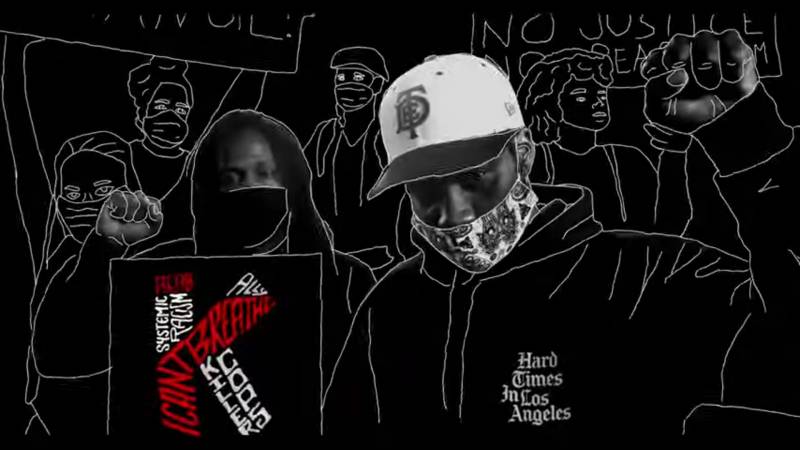I can’t tell you if it’s music for the movement, music for “the moment,” or just music to make money. But I can tell you artists have been working. And I’ve been listening.

Between the COVID-19 pandemic, the nationwide protests and the push for defunding the police, a wave of songs has arrived, all of them documenting the beginning of summertime in 2020.
Last week, Beyoncé released the track “Black Parade,” a lil’ southern flavor to accompany the Juneteenth holiday. Queen B doubled down on its message of Black empowerment by teaming up with stylist Zerina Akers, who runs the @black.owned.everything page, to create a Black business directory called the Black Parade Route.
J. Cole and Noname had a back-and-forth, during which Cole dropped “Snow On The Bluff,” a call for Noname to make her message accessible to the masses. Noname responded with “Song 33,” a track that pretty much asked J. Cole why he was rapping about her, asking her to change her “tone,” when there are far more important issues to be addressed.
In the past month, Lil Baby, Tee Grizzley, Trey Songz, YG and Meek Mill all dropped songs about police brutality and systematic racism. Wale released a six-song EP, The Imperfect Storm, which covers those issues and more. DaBaby released a “Black Lives Matter Remix” to his chart-topping song “Rockstar” featuring Roddy Ricch.
And Anderson .Paak crossed off all the boxes on his “Summer Song 2020” bingo card—he put out a song called “Lockdown,” on Juneteenth, that managed to mention COVID, police brutality, looting, slavery, protests and the unemployment rate.
Up here in the Bay Area, one of the most politically engaged and artistically inclined regions in the country, you already know artists have been getting active.
E-40’s new track “Give Me 6” is a musical request that suggests maintaining the proper physical distance for pandemic socializing. Oakland’s Damian Lillard dropped “Blacklist,” a track about the racism he faces, even as a wealthy African American man. And Berkeley’s Rexx Life Raj released a single about police brutality simply called “War”.
But it’s the artists who aren’t as popular who’ve really been talking that shit.
I saw Oakland’s ST Spittin’ in traffic recently, where he said he had something for me. His latest single “Huey P. Malcolm Martin” features a sample of Stevie Wonder’s “Visions”—and I was sold on it from the first note.
Berkeley’s Netta Brielle shifted the tempo with her new release, “Get To You,” a song that’s more about embracing love than protesting hate—a needed sentiment in these times. Another track using R&B to express emotion during tumult came from Oakland’s Tai Marie, who recently put out a soulful R&B single titled “Warzone.”
Dipping her toes in the classical-piano realm is San Francisco’s Angélica Ekeke, who just put out the song “Modern War.” She says the track is inspired by her upcoming film on African American contributions during WWII at one of the nation’s largest shipyards, right here in Marin. But the words she sings, in her trademark soprano tone, are eerily relevant to today.
From Sacramento, Rob Woods’ The Black Tape mixes rap lyrics about hope and oppression over R&B vibes, and an undertone of that church feeling throughout the project. (He even incorporates a cold saxophone on the song “Stuck.”) And Pittsburg’s Hotboikal shot the video for “Hands Up, Man Down” in the middle of a protest march in Santa Rosa, with lyrics about racial profiling and police brutality.
Sharing that sentiment is Richmond’s Wallah Umoja, who dropped a new video for an older track, Senses, delivered in a boom-bap cadence. Following that flow is Dom Shalom’s “The Next,” a chill vibe that I’d also describe as boom-bap rap.
And if you like music that bends genres, Oakland’s Dom Jones came through with soulful jazz-rock for the spirit. Her latest track “Sayin’ Nothin’” is the stuff movie soundtracks are made of.


